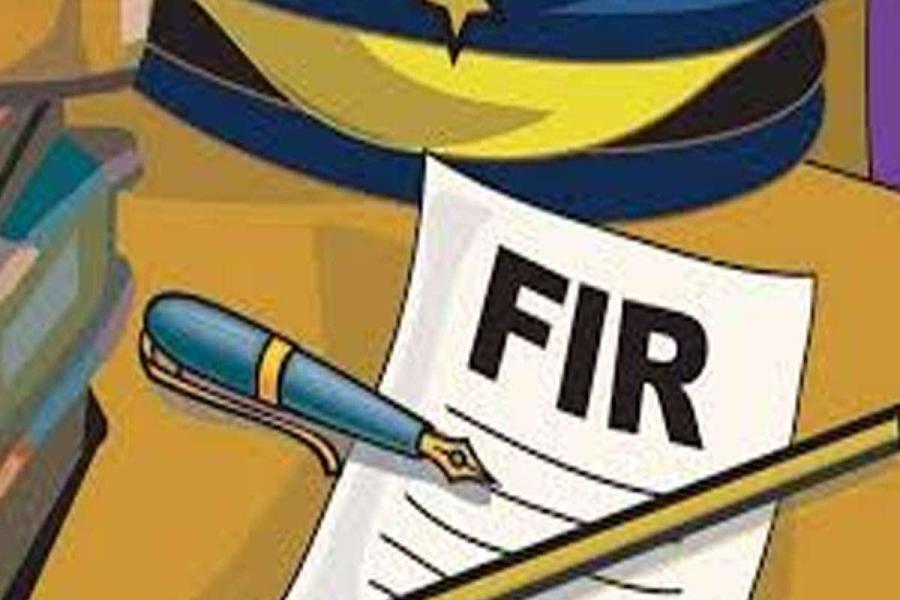
It is responsibility of every public servant to maintain peace and order in the society. In order to do that public servants can promulgate orders. If someone disobey such order, than he would be liable for prosecution in accordance with provision of Section 188 of Indian Penal Code. In the recent scenario, due to COVID-19 pandemic, government had promulgated order of LOCKDOWN and whoever disobeyed order, consequently faced legal action. Now question arises, whether police has authority to file FIR under Section 188 of Indian Penal Code and arrest such person when provision of Section 195(1)(a) of Criminal Procedure Code makes it clear that a Court is incompetent to take cognizance of any offence punishable under Sections 172 to 188 of Indian Penal Code without a written complaint of the concerned public servant.
Interpretation of Section 188 of Indian Penal Code (IPC) and Section 195(1)(a) of Criminal Procedure Code (CrPC)
Section 188 of Indian Penal Code provides for punishment for disobeying order promulgated by Public Servant. According to Schedule 1st of CrPC, offence under section 188 of Indian Penal Code is cognizable. Definition for Cognizable offence is given under Section 2(c) of Criminal Procedure Code Cognizable offence means offences in which police officer may arrest a person without warrant, following procedure given, for arrest.
In landmark cases of Lalita Kumari V. State of Uttar Pradesh and Sandeep Shukla V. State, Hon’ble Courts held that, police is duty bound to register FIR and investigate matter if the information received by them discloses commission of cognizable offence. As the classification of offence under Section 188 of Indian Penal Code is Cognizable and bailable, it is mandatory on Police to file FIR and investigate the case accordingly.
Section 195(1)(a) of Criminal Procedure Code provides procedure for prosecution of contempt of lawful authority of public servant. According to this section, court shall not take cognizance of any offence punishable under Sections 172 to 188 of Indian Penal Code without a written complaint of the concerned public servant. The term Complaint is defined under Section 2(d) of Criminal Procedure Code as any allegation made orally or in writing to magistrate to take action against person who has committed offence and it does not include police report.
The regular procedure for criminal cases is to register an FIR under Section 154 of Criminal Procedure Code, arrest the accused without a warrant and investigation by the police. Eventually, Police need to submit the Final Report (Charge-sheet) on completion of investigation under Section 173 of Criminal Procedure Code On the basis of such report, the Court takes cognizance and trial begins.
Dispute
Now, the conflict is that if the offence has been committed punishable under section 188 of Indian Penal Code, then police shall register FIR accordingly, as it is cognizable offence and follow regular procedure afterwards. However, in accordance with Section 195(1)(a), court is incompetent to take cognizance of offence committed under Section 188 of Indian Penal Code unless a written complaint of the concerned public servant has been given to the court. It means usual procedure of filing FIR, investigation and final report becomes useless.
Also, conflict arose in between Section 154 of Criminal Procedure Code and Section 195 of Criminal Procedure Code As per Section 154, it is mandatory for police to reduce any information as to commission of cognizable offence in writing i.e. to register FIR. Also it is clearly guided by Hon’ble Supreme Court in Lalita Kumari case. However, Section 195 of Criminal Procedure Code states that no court shall take cognizance of case under Section 188 of Indian Penal Code even though it is classified as cognizable offence. Section 154 and 195 of Criminal Procedure Code are apposite to each other and rather contrary.
Whether Section 195 Criminal Procedure Code Bar Registration of FIR and Investigation of offences under Section 188 of Indian Penal code?
Criminal Procedure Code is procedural law whereas Indian Penal Code is substantive law which provides for offence and punishment. Primarily, if we read Section 195 of Criminal Procedure Code, then we will find nothing which will deter police from filing an FIR for offence punishable under Section 188 of IPC. It just making courts incompetent to take cognizance of the case. Filing of FIR and cognizance of the case are two different things. When Criminal Procedure Code itself provides that offence is cognizable, then it would become mandate to register FIR and do further investigation in the matter. Now, question of cognizance come in picture, when police will submit final report or upon receiving a complaint of facts which constitutes offence, in the court in accordance with Section 190 of Criminal Procedure Code. So in my opinion, if court cannot take cognizance of offence under Section 188 of Indian penal code in accordance with Section 195 of Criminal Procedure Code, then it does not mean police cannot file FIR and investigate matter.
There are several judgments giving different views on this issue:
In State of Punjab V. Raj Singh, the Hon’ble Supreme Court held that, Statutory power of the police to investigate case punishable under Section 188 of Indian Penal Code cannot be controlled by Section 195 of Criminal Procedure Code Court further stated that after completion of investigation police can file charge-sheet in the court. Even though Court is incompetent to take cognizance of the case according to Section 195 of CrPC, it can file complaint on the basis of FIR filed by the aggrieved private party.
In M. Narayandas V. State of Karnataka, Hon’ble Supreme Court observed that Sections 195 and 340 of Criminal Procedure Code do not control the power of the police to investigate under Code.
From abovementioned judgments it is clear that, it is mandatory for police to register FIR for offence under Section 188 of Indian Penal Code and nothing in the Section 195 of Criminal Procedure Code prevents or takes away power of police to investigate in offences as contemplated under Section 195 of Criminal Procedure Code.
Perhaps, recently Madras and Bombay High court put different views regarding this issue.
Recently, the Madras High Court had quashed an FIR registered against an Anti CAA protestor for offence punishable under Section 188 Indian Penal Code and relied upon judgment in Jeevandham case.
In Jeevandham v. State, Hon’ble High Court has given following guidelines.
A police officer cannot register an FIR for any of the offences punishable under Section 172 to 188 of Indian Penal Code.
A police officer can arrest a person when a cognizable offence under Section 188 of Indian Penal Code is committed in his presence or where arrest is required, to prevent such person from committing an offence under Section 188 of Indian Penal Code.
The role of the police officer will be limited only to the preventive action and immediately thereafter, he has to inform about the same to the concerned public servant, to enable him to give a complaint in writing to court for taking further action.
No judicial court would take cognizance of Final report in respect of such offence.
Further, court directed Director General of Police of Chennai and Inspector General of various zones to immediately formulate process which would empower concerned public servants to deal with offence under Section 188 of Indian Penal Code to ensure no delay in filling written complaint by such public servant in according to Section 195(1)(a) of Criminal Procedure Code.
Bombay High Court in Shrinath Giram v. State of Maharashtra, had taken similar view. The Court held that no Police officer can file FIR for offence punishable under Section 188 of Indian Penal Code and it is barred under Section 195 of Criminal Procedure Code
Also in the case Apurva Ghiya v. State of Chattisgarh, the Hon’ble High Court has held that the police cannot register an FIR for the offence under Section 188 of Indian Penal Code and entire prosecution would be rendered Void-ab-initio if the procedure given under Section 195 of Criminal Procedure Code is not complied with. The Court further observed that, merely because the offence under Section 188 of the Indian Penal Code is cognizable, does not authorise the police officer to register FIR because the registration of FIR would necessarily result in submission of police report under Section 173(8) of the Code which is specifically barred by Section 195(1)(a) read with Section 2(d) of the Code. The definition of “complaint” contained in Section 2(d) of the Code makes it clear that complaint does not include a police report.
These are the different views of courts on this issue. Perhaps judgement given by Hon’ble Madras High court in Jeevandham case, is clearly per-incuriam to the decisions in Raj Singh and M. Narayandas case. Doctrine of per incuriam means judgement given in ignorance of earlier binding precedents. It is bad in eye of law.
Dispute Resolution
The conflict will arise if we follow default or usual procedure of cognizable offence, while dealing with an offence punishable under Section 188 of Indian Penal Code, due to bar created by Section 195(1)(a) of Criminal Procedure Code To deal with this conflict we could stray a little bit in usual procedure.
When offence punishable under Section 188 is committed and police received information regarding such offence, then police will register FIR, investigate into the matter and prepare final report (Charge-sheet) in usual manner. But, along with final report, public servant shall give a complaint in writing to the court. So, court can take cognizance of the offence and requisite of Section 195 of CrPC would get complied. Perhaps Madras High court was not accepting this contention in Jeevandham Case.
In the recent situation, when the courts are not fully functional, it is not possible for the concerned Public Servant to approach the court. At this situation, Public servant may give informal complaint to police who shall register FIR, investigate matter and prepare informal report of the matter. And, when courts will be fully functional and it will be possible to approach the court, the Public Servant can give formal complaint in writing in accordance to Section 195 of Criminal Procedure Code along with informal investigation report. If there is any irregularity in report, than court is empowered to reject findings and may order fresh investigation.
Conclusion
In 1949, while advocating a new approach towards Interpretation of Statues, Lord Denning MR in Seaford Court Estates Ltd. V. Asher said, “A judge should ask himself the question: if the makers of the Act had themselves come across this ruck in the texture of it, how would they have straightened it out? He must then do as they would have done. A judge must alter the material of which it is woven, but he can and should iron out the creases”.
Under Section 154 of Criminal Procedure Code, it is mandatory for Police to file FIR if they received information which discloses commission of cognizable offence and on other side, Section 195 of Code, deters police from filing FIR for offence punishable under Section 188 of Indian Penal Code even though offence is classified as cognizable. Therefore, there should always be harmonious interpretation of statue if provisions of law are in conflict with each other. If we follow above mentioned solution then both conflicting provisions under Section 188 of Indian Penal Code and Section 195 of Criminal Procedure Code can operate together. Whenever such conflict arises in between two different provisions of law then it becomes fundamentally important to ding the intention of the legislature, especially while interpreting the procedural laws.
In the end, it is open to Courts in the words of Lord Denning to decide which approach is better towards interpretation, whether The Old Grammatical Approach or The Modern Purposive Approach.
=====================================
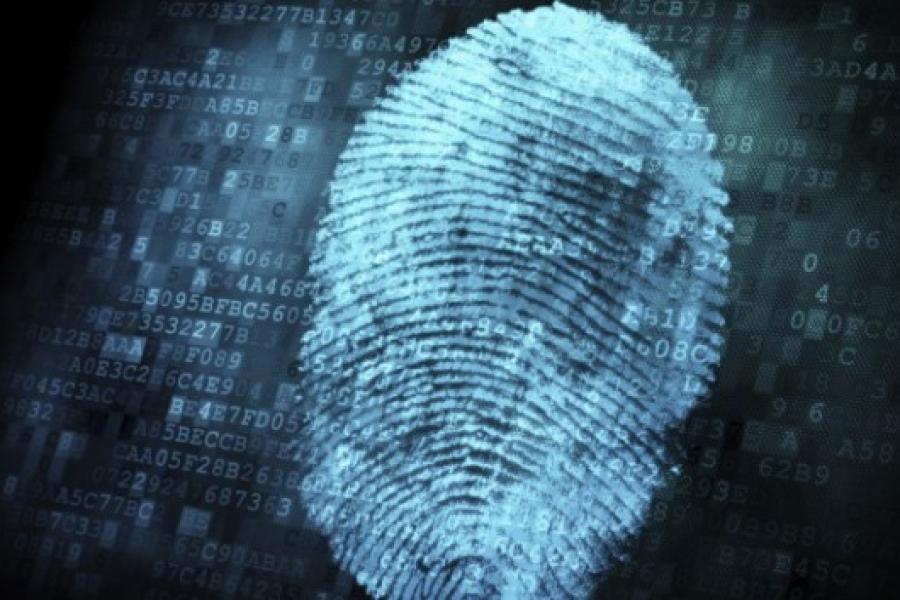
Caught through Finger Print
SUCCESS STORIES OF C.F.P.B. EXPERTS IN THE LAST FIVE YEARS
Readers can have a glimpse of success stories w.r.t. fingerprint cases solved by C.F.P.B. experts in the past five years from 2010 to 2014
I. INTERPOL CASES
Identification of an International Fugitive wanted for Homicide in Colombia (South America): CFPB Case Ref. No. 203/2010
A high priority request for identification of an international fugitive, was received from the O/o the AD (Interpol), CBI, NCB-India, on 04th August 2010. The documents forwarded to CFPB/NCRB consisted of two copies of messages received from Interpol Colombia (South America), with an identification sheet containing demographical details as well as a fingerprint of one BARRIOS GUARIN Jose Mauricio (Colombian Citizen, ID No. 79705615, D.O.B. 14.02.1976) and a 10-digit fingerprint slip of one MAITA RODRIGUEZ Perd Alejandro. The Interpol had requested CFPB to compare single finger print with those on 10-digit fingerprint slip. After meticulous manual comparison of fingerprints on the two documents by Shri S. P. Singh, Inspector, now Dy. Supdt. (F.P.), ascertained that the single fingerprint of BARRIOS GUARIN Jose Mauricio was IDENTICAL with the Right Index (RI) finger impression present on the specimen 10-digit F.P. slip of MAITA RODRIGUEZ Perd Alejandro, hence the two finger prints were found to be of one and the same person. The result of comparison was forwarded to AD (Interpol), CBI- NCB India, New Delhi, in record time. Sh. S.P. Singh, Dy. Supdt. (FP), CFPB has also published a number of Scientific Research Papers on Fingerprints, Criminology, Forensic & Police Science etc, which are available on CFPB webpage.Detection of Criminal Antecedents: CFPB Case Ref. No. 224/2011
A fingerprint slip pertaining to one Singh Iqbal was forwarded by Interpol, London to CBI, New Delhi and was received at CFPB, NCRB, New Delhi for search in the available database. The search slip was processed in FACTS (CFPB-AFIS) and was found to be a ‘trace’ against a record slip archived with CFPB PIN 604744. The successful search brought to light the criminal antecedents of the subjected person, who was convicted in pursuance of criminal case registered vide FIR No. 34 dated 24.09.1996 in the court of SDJM, Nabha on 20.09.2000 U/s 324/34 IPC. The CFPB team which successfully tracing of the Interpol search slip consisted of Inspectors (F.P) Shri P.K.Mishra, Shri Anil Gaynar, and Smt. S. Indira Sudha.II. CASES / REQUESTS FROM OTHER GOVERNMENT AGENCIES
Identification request from NIA, Guwahati, Assam: CFPB F.P. D. Case No. 11/2013
The NIA supected that N.Shanti Metei chief of PREPAK (UPPK), a banned terrorist organization active in anti-national activities was using forged documents, and false identities, for the purchase immovable properties in India and abroad. Thorough comparison of the fingerprints of T. Hemanta Sharma on land agreements, sale deeds etc, and specimen fingerprints of N.Shanti Metei, led to conclusion that the prints were IDENTICAL, thus proving that N.Shanti Metei used psydonym for illegal purchases. The efforts of Shri P.S. Gulati, Inspector, now Dy. Supdt. (F.P.) assisited NIA in its persuit for identification of a dreaded terrorism.CFPB Experts assisted Regional Provident Fund Organization (RPFO) in Detecting Dishonest Employer: CFPB F.P. Document Case No. 21/2012
The case was regarding non-extension of PF benefits to 1200 workers by a construction company, covered under Employees Provident Fund & MP Act 52. The RPFE authorities observed that the record containing the muster roll having names, payment details, thumb impressions of workers, submitted by the company are at variance with the norms, thus requested CFPB/NCRB to examine the case in detail, and furnish opinion on fingerprints thereof. The expert in the bureau examined the documents containing large number of thumb impressions, of which many were of extremely poor quality, and found major discrepancies in the finger impressions of the workers employed by them. The sincere efforts of Shri Ram Ranjan Sharma, Inspector (FP) in cracking the case assisted the RPFO authorities to implicate deceitful employer who manipulated the documents with ulterior motives.Impersonation in the Pre-medical Examination detected with Fingerprints: CFPB F.P. Document Case No. 17/2013
A finger print document case was received from the Hon’ble CJM, Pouri Garhwal, for experts’ opinion, along with the following original documents - Attendance sheet of G.B. Pant University of Agriculture & Technology, Pantnagar, Uttarakhand, Pre-medical Test sheets of 2011 bearing roll nos. 313813 to 313817, and two specimen finger print slips of one Yusuf Alam S/o Farookh Ahmed. This case was registered vide Cr. No. 10/12 u/s 8,419,420,467,468 & 471 IPC, at PS Srinagar, Janpad Pouri Garhwal. The CFPB experts’ task was to detect whether Yusuf Alam impersonated for one Haripal, in Pre-medical Test - 2011. The case was examined with the help of scientific aids, and it was opined that LTI (left thumb impression) taken against the Roll no. 313815 of Haripal at the examination centre is identical with that of Yusuf Alam. It was because of the efforts of Shri Udham Singh, Inspector (FP), CFPB, that an impersonator was identified.Impersonation/cheating in the recruitment process of the Ordnance Factory: Document Case Nos. 22/2013 & 03/2014
The authorities at the Ordnance Factory, Ministry of Defense, Raipur, Dehradun, Uttarakhand, doubted the authenticity of the final list of 54-candidates selected through written and trade tests conducted by them. The CFPB was sent finger prints of all the 54-provisionally selected candidates, for comparison to know whether there were any cases of impersonation. After thorough examination, the expert in the Bureau was able to discern, that in three cases the finger impressions were different, from one another, indicating impersonation on the part of the candidates. Sh. Mukesh Kumar, Inspector (FP), CFPB examined the case.Identification of Unknown Dead Body (UDB): CFPB FACTS Case Srl. No. 17/2014
A total of 55 fingerprint slips for establishing identity were received in FACTS (CFPB-AFIS) from Haridwar, Uttarakhand State police Department. The slips carried fingerprints of Unidentified Dead Bodies (UDBs). Majority of fingerprints were faint, smudged, or partial. All the slips required additional computer based enhancement efforts to make them decipherable for comparison by the system. Out of the 55 slips, one unidentified dead body fingerprint slip matched with the slip of one Jamil S/o. Mustaq of P.S. Kithore, Meerut, U.P. The successful input of UDB Fingerprint slip (CFPB PIN No. 90440105) followed by trace with slip bearing PIN 90423149, revealed the following antecedents of the subjected person - Jamil was convicted in pursuance of criminal case registered vide FIR No. 60 dated 19-03-2013 U/S 363 IPC of ODRS police station. Smt. S. Indira Sudha, Inspector (FP), CFPB was actively involved in the process of identification of the UDB.Five thousand finger impressions for examination from Income Tax Department
A mammoth case for finger print examination was received at CFPB from Shri P.K. Sharma, Dy. Commission of Income Tax, Circle-12 (i), New Delhi with original registers of `Wages & Labour' comprising 62 pages of A-5 size, and 128 pages of A-4 size (total 190) bearing more than 5000 finger prints for examination. The case was examined by Shri S.K. Tiwari, Inspector (F.P.) and the opinion was given in record time, to fulfill the needs of Income Tax Department.Fraudulent withdrawal of money: CFPB F.P. Document Case No. 13/2014
A document case received from Sr. Supdt. of Post Offices, Koraput Division, Jeypore (K), Odisha, dated 04.09.2014 regarding one Shri Sushanta Majhi (illiterate person) holding an SB Account No. 7101564 at Ambadola Sub-Post office. A sum of Rs. 9000/- was withdrawn on 26.04.2008, and Rs.19000/-on 22.02.2011 from his SB Account fraudulently. After comparing questioned fingerprints on the withdrawal slips with the ten digit specimen finger print slip, provided by the post office, it was found that the finger impressions did not belong to that of Shri Sushanta Majhi (actual account holder). Thus it became apparent that the money was withdrawn twice by two different individuals, and not by the genuine account holder. The case was examined by Shri Pawan Kumar Mishra, Inspector (FP), CFPB.Debt Recovery Tribunal Case: CFPB F.P. Document Case No. 4/2010
A person secured the loan of Rs.9.00 lakh from SBI, Jagatpur, Cuttack, Odisha by mortgaging a piece of property as collateral. When he failed to return the loan, the bank initiated the process to impound the mortgaged property. Only then, the bank realized that the property actually belonged to a 70-year old widow, which was mortgaged without her consent or knowledge by the applicant for loan. The elderly lady was the mother of a friend of the accused, and on realizing the fraud she made a plea before the honorable Debt Recovery Tribunal to verify the finger impressions taken on the mortgaged deeds, which were submitted before the lending agency to secure the loan. Interestingly the finger impressions, 63 in total, taken on each page of the deed as testimony, were of extremely poor quality, perhaps, recorded in such manner, deliberately. After a close scrutiny only two finger prints were found to be of some utility, though they too were partial. Nevertheless, the impressions were photographed carefully in CFPB photo-lab; the finger impressions of elderly widow recorded before the tribunal, were compared and found to be different with the finger impressions taken on the mortgaged deeds. Sh. Shibajee Tripathy, Inspector (F.P.), CFPB examined the case and detected impersonation.
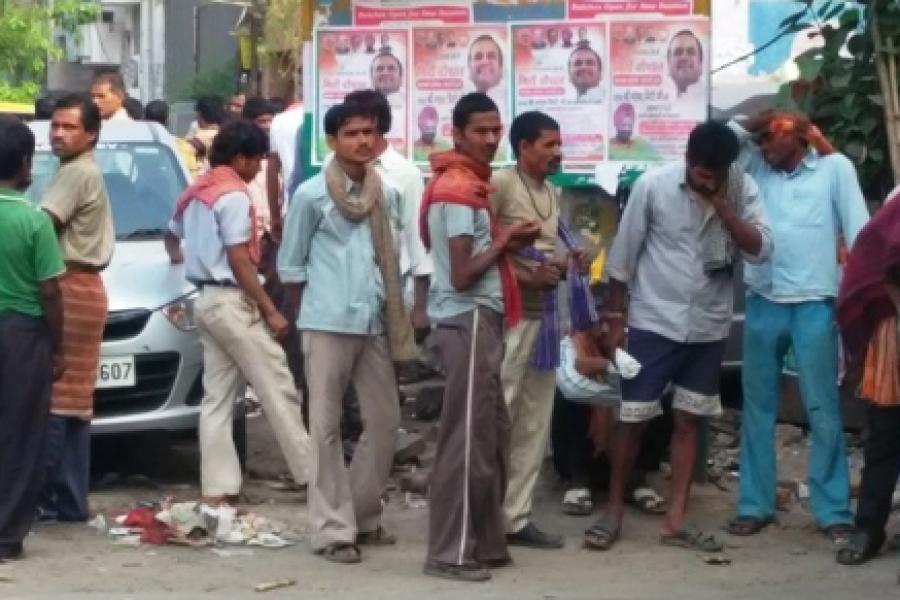
The AAP manifesto may have talked at length about “a flexible and fair labour policy” and regularisation of contract workers, but for a vast section of daily wage-earners, such promises hold no meaning. Devanik Saha talks to one to find out why.
Post the Lok Sabha election results in May 2014, the Aam Aadmi Party (AAP), which surprised everyone by winning 28 seats in its debut election in Delhi in December 2013, had lost its relevance.
At this juncture, it was expected that Delhi would go to polls soon and AAP’s existence would be reduced to rubble. However, elections were delayed, and while BJP was busy basking in its Lok Sabha glory and the subsequent successes in Haryana and Maharashtra, AAP went back to the streets and initiated the Delhi Dialogue program, which focused on numerous one-on-one interactions as well as debates with general masses on the various issues concerning citizens.
This formed the base for AAP’s 70 point manifesto for the Delhi elections which was on the face of it, extremely comprehensive. At first glance, the problems of every section of society seem to have been covered and deliberated upon. And yet for the many migrant casual labourers in the city and its neighbourhood, the new government’s promises do not hold much hope.
The invisible makers of the city
Take the case of 44-year-old Anil Kumar, who hangs around near Ashram Chowk in South-East Delhi for 4-5 hours every day in the hope that someone will provide him some work, enabling him to make ends meet for himself and his family. Kumar is just one of the many labourers belonging to varying age groups who loiter at the Chowk in their quest for daily work.
Where dreams turn sour
Originally from Rajapur Village, Bhadohi district, Uttar Pradesh, Kumar has had a rough past. To support his family, he dropped out from school when he was in the fifth standard and started weaving carpets from an early age, which required him to work 12-13 hours a day. Bhadohi is known as the carpet city as it is home to the largest hand-knotted carpet weaving industry hubs in South Asia. Cases of child labour and forced slavery are rampant, though Kumar does not recall being forced into it.
Asked about his childhood, he says, “You must be knowing about the widespread poverty in UP. I liked going to school but since we didn’t have money, I started working from an early age. But there were many days when we didn’t have money to buy food and hence we all slept hungry”.
After spending 13 long years weaving carpets, however, he realised that the job demanded too much but paid little. Being from UP, he always believed that Delhi was the place to be if one wanted to become financially stable. But even after reaching the capital, after a seven-year intermediate stint in Goa, things did not look rosy for Kumar.
Cheated by a big contractor named Bablu, Kumar tried his hand at running flower shops at various locations in Delhi, where he was regularly heckled by policemen for bribes. Disillusioned and dejected, he decided to return to the life of daily wage labour again. With a heavy voice he said “No one wants to live like this but I do not have any option. What else will I do?"
Anil Kumar's Delhi dreams have been shattered and he plans to return to his village soon. Pic: Devanik Saha
Tales such as this are not rare to come by. As Kumar himself points out, most daily labourers do not get more then 14-15 days of work (Rs 300/day) in a month, which means that they do not earn more than Rs 4500-4700/month. “The issue is that there are so many labourers but very little work. At Ashram, there are at least 35-40 labourers who come searching for work every day.
With employment difficult to secure, shelter is precarious too. The Delhi Urban Shelter Improvement Board manages 272 night shelters called “Rain Basera” at various locations in Delhi in collaboration with NGOs. The Baseras collectively house around 6000 people every day. Kumar pays Rs 5 a night to sleep at the Basera in Sarai Kale Khan, a place notable for its inter-state bus terminal, three kilometers away from Ashram Chowk.
Kumar says “The Basera is a shelter for homeless people and daily labourers like me, who come from far-away places and do not have any house. Facilities at the Basera are pathetic, but I have no other option.” He adds that this is the plight of almost every labourer with whom he works or stays with at the Basera.
Kumar has now given up on his dream to live and stay in Delhi happily. “I plan to go back to my village in the next two months. I imagined that I would have a good life in Delhi and earn enough for me and my family, but it is not working for me anymore. My village is much better than this. At least, my family will be there to support me in times of need and distress.”
Who will address their woes?
Kumar’s tale and of others like him takes one back to the promises made by the AAP government over regularisation of workers in the unorganised sector.
Point 48 of the AAP manifesto placed emphasis on social security for labour, promising that the party would “implement a flexible and fair labour policy. Our policy will ensure social security for workers in the unorganized sector; regulate wages, services and working hours of domestic workers and improve work conditions of rag pickers. Local Mohalla Sabhas will provide licences to street vendors and hawkers in designated spaces.”
Later in the document, Point 66 assured that “AAP will end contractualisation in “safai karamchari” posts and will regularize existing employees. Workers who enter sewers will be provided with protective gear, masks and appropriate equipment. Like fire fighters, they will receive medical insurance. To help in their career advancement, safai karamcharis will be provided assistance in education and training. On the death of a “safai karamchari” on duty, Rs. 50 lakh will be given to the bereaved family.”
While these manifesto points initially raised hope, a deeper exploration shows that they are in fact quite open ended, with no specific focus on labourers like Kumar. The primary difference between such workers and contractual workers mentioned in the manifesto points is that of continuity. Contractual workers aren’t entitled to any job benefits, but since they are employed by corporations and government bodies, they have a regular flow of work and money.
Daily wage-earners loiter around Ashram Chowk in Delhi in search of work. Pic: Devanik Saha
This leaves a large population of daily wage earners outside the social security net, with unassured employment and income. Rwitwika Bhattacharya, Founder, Swaniti Initiative, and a former World Bank professional, who has worked extensively on labour economics and policies, explains, "Employment/job creation is the result of a confluence of factors and one of the major assumptions we make is that our work force has the labour skills to be absorbed. One of the most significant issues is that we have a lot of people in rural or peri-urban areas who have marginal or no skills, and hence it is difficult for them to get jobs. The result is that we have tremendous migration happening from these areas to the cities in search of work."
This naturally brings us to the question, what can be done to improve the lot of these workers? The need for creation of rural employment to stem the tide of migration is important, but any prescient individual or authority will acknowledge the equal, if not greater, importance of devising employment policies for the urban poor and migrant population. A UN-backed report estimates the population in Indian towns and cities to reach 600 million by 2031, driving home yet again the importance of addressing the concerns over absorption of and social security for migrant workers in the cities.
Coming back to Delhi, the AAP government’s commitment to development and openness to new ideas has been partially borne out by initiatives such as India’s first e-ration card service, recently launched by the chief minister, Arvind Kejriwal.
But if it really wishes to live up to its promises towards the ‘aam aadmi’ in general and workers in the unorganised sector in particular, it must come up with a better plan to provide regular employment and better working and living conditions for the many daily wage earners in the city.
Bhattacharya adds, “The larger issue is that daily wage labourers aren’t unionised; neither do they bring votes for election candidates. Since these labourers are mainly migrants and do not get to vote in the cities they work in, their voices are barely heard. A good solution would be to unionise these labourers, which will enable them to fight for their rights and compel politicians to take them seriously.”
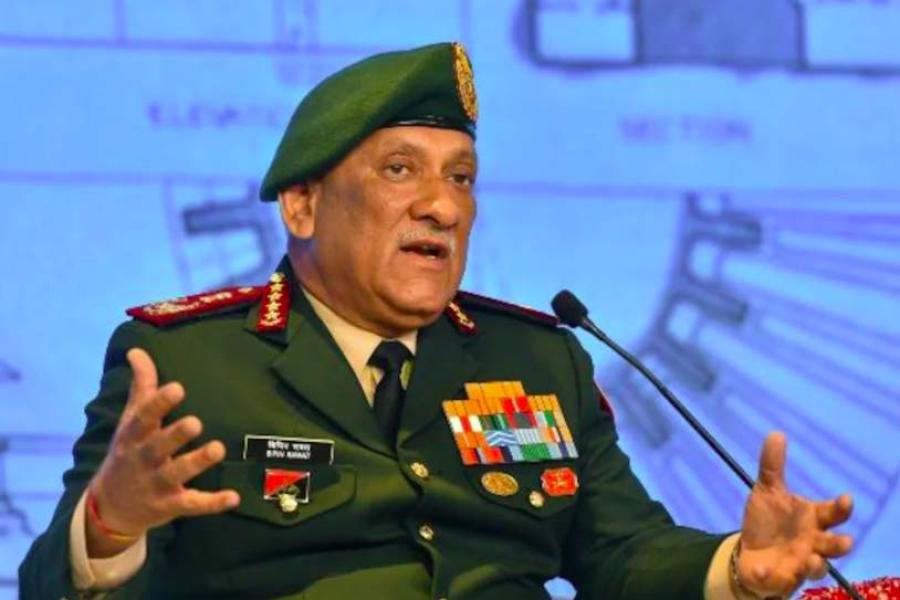
Soldiers sacrifice is Supreme , pay 5 Crores compensation , demand by Dr Anthony Raju , Advocate and Global Chairman - All India Council of Human Rights , Liberties and Social Justice AICHLS.
When we shower crores of rupees on Players , Cricketers , foreign trips , why we can pay 5 Crors to the brave solders who has made supreme sacrifice for the country.
We request all the big players may be Mr Sachin Tendulakar or Mr Amitabh Bachchan or Mr Ambani to open their heartr and support financially to these Real Heros.
Bihar Chief Minister Nitish Kumar today announced Rs. 5 lakh award for each of the three soldiers, hailing from Bihar, who were killed in the terror attack at an army base in Uri sector of Jammu and Kashmir.
The Chief Minister also announced that his government would accord full state honour to the three soldiers - SK Vidyarthi, Rakesh Singh and Ashok Kumar Singh - who belonged to the Bihar regiment.
While expressing his sadness over the attack on the army base, Mr Singh said: "The country will always remember their martyrdom."
He also offered his condolences to the families of the three soldiers, adding that the entire state shared their sorrow.
In Boknari village of Gaya, an angry Kiran Devi, the wife of SK Vidyarthi, demanded action against the men who killed her husband. Her daughter Aarti Kumari said that her father died a martyr, and that India must give a befitting reply to Pakistan.
Family members of Rakesh Singh of Nuwan village in Kaimur district and Ashok Kumar Singh of Ara in Bhojpur district remembered the two soldiers with teary eyes and pride in their sense of duty.
The bodies of the three soldiers are expected to reach Patna on Monday evening, from where they would be taken to their respective homes.
The minister in-charge of Kaimur and Gaya district would be present at the cremation of Rakesh Singh and SK Vidyarthi, while the funeral of Ashok Kumar Singh in Ara would be attended by industries minister Jai Kumar Singh.
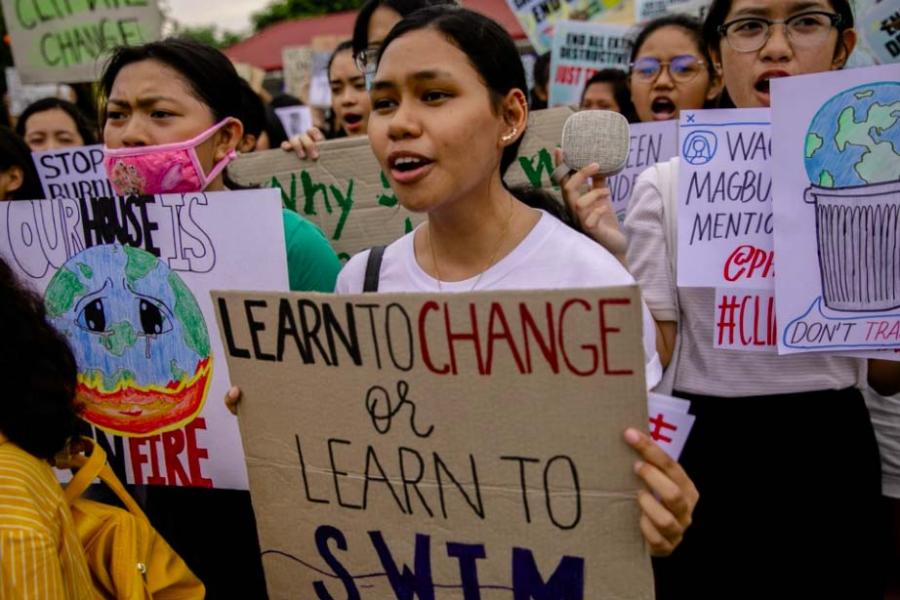
SOME OF THE MAJOR ISSUES :
Administration of justice
Impunity
Refugees, IDPs & Asylum seekers
Arbitrary arrest & detention
Independence of judges & lawyers
Right to education
Caste-based discrimination
Prosecution system
Right to fair trial
Child rights
Inhuman & degrading treatment
Right to food
Corruption
Institutional reform
Right to health
Death in custody
International human rights mechanisms
Right to life
Death penalty
Judicial system
Right to redress Democracy
Labour rights
Right to remedy
Enforced disappearances & abductions
Land rights
Rule of law
Environmental protection
Legislation
Sexual violence
Extrajudicial killings
Migrant workers
State of emergency & martial law
Terrorism & human rights
Freedom of association
Minorities Threats and intimidation
Freedom of assembly
Non-state actors
Torture
Freedom of expression
Police negligence
Transitional Justice
Freedom of religion
Police violence
Violence against women
Human rights defenders
Poverty & adequate standard of living
Victims assistance & protection
Human trafficking
Prison conditions
Women's rights">
You also become the part of Advisory Committee and write to us
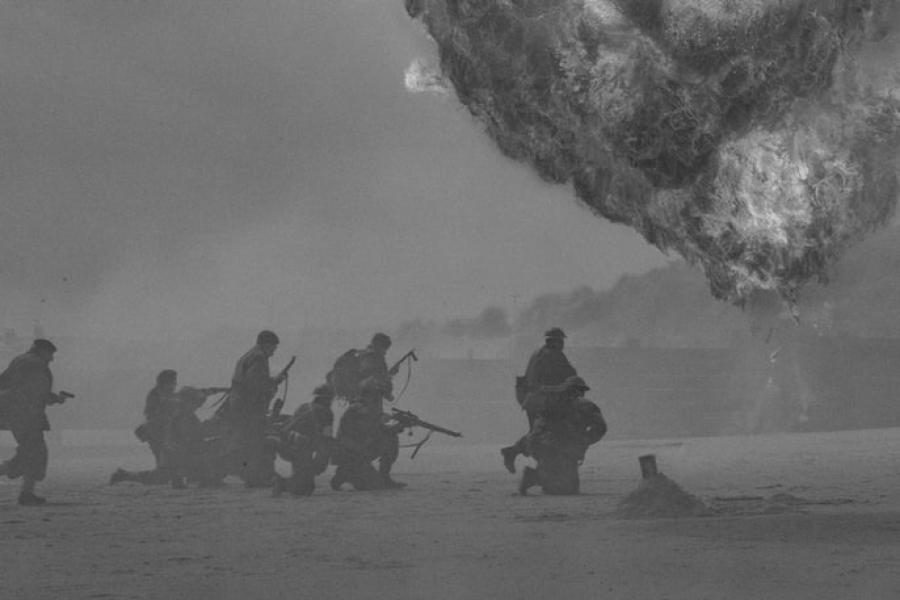
In wake of the cross-border terror attack from Pakistan on an Indian army base in Jammu and Kashmir that left 18 Indian soldiers dead, India on Tuesday used the biggest international forum to say that terrorism was the biggest threat to human rights.
“Mr. President, I do want to stress that terrorism is the biggest danger to human rights,” minister of state for external affairs MJ Akbar said in his address in the Summit for Refugees and Migrants during the 71st Session of the UN General Assembly.
His comments came even as Pakistan has been raising the issue of human rights violations in Jammu and Kashmir following the killing of Hizbul Mujahideen terrorist Burhan Wani that triggered large-scale violence leaving over 80 people dead.
“Terrorism is an existential threat. Hypocrisy towards this crisis will not do.
“There is no good terrorism or bad terrorism and if we do not know answer to this question, all you have to do is to ask the refugees if he considers any terrorism to be good or bad.”
Akbar said that large movements of people across borders serve as reminders that the world has become a global village.
“We can only prosper or perish together. It is best that we learn to live in peace, prosperity and amity,” he stressed.
Akbar pointed out that the number of people on the move globally was estimated at close to 250 million or one in every 30 persons.
“Refugees are currently estimated to be around 20 million - one of every 12 persons on the move.
“Three-fourths of the refugees come from just 11 countries. Seven countries host more than half of all refugees. Almost 90 percent of all refugees are hosted in emerging countries!” said Akbar, and also highlighted India’s role in hosting refugees.
“There is a long history of large communities seeking refuge in India. Are we prepared?” he said.
“I recall vividly the time when our neighbour Bangladesh was fighting for independence, more than 1.2 million people took refuge in India from the genocide they were faced with,” he said.
“We have long experience of this and we have developed situation-specific responses in each such instance.
“People seeking shelter in our country have never been turned back. Our record in this context is actually unique,” he said.
At the same time, he put up a poser.
“It is assumed that only host nations do not want refugees, I ask, do refugees also want to become refugees.
“They don’t. We must understand this and underline it and therefore find out what drives them towards seeking refuge. Prevention is better than cure, or perhaps prevention is the only cure,” he said.
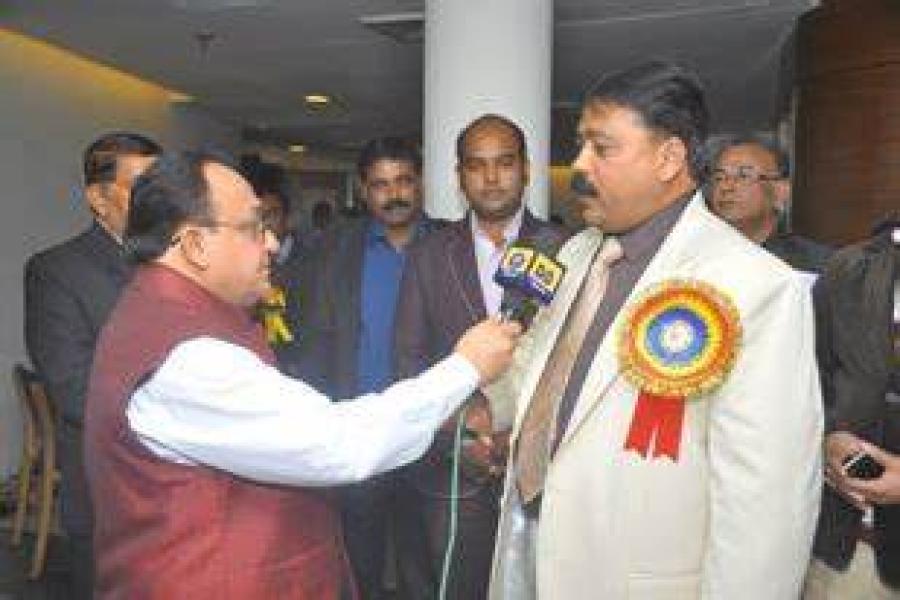
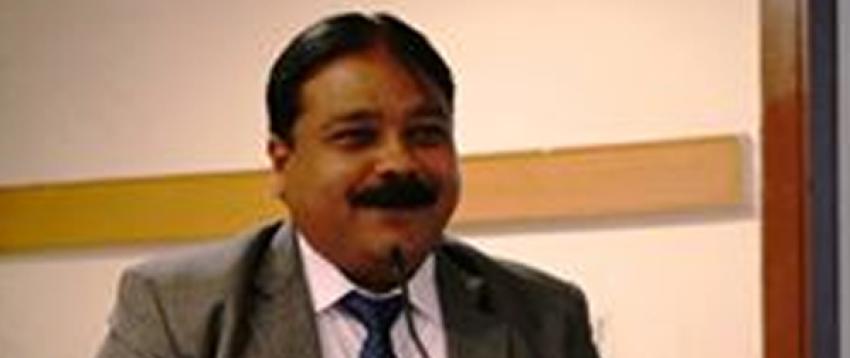
Delhiites being the greatest sufferer and victim of Dharna by one, Drama by other , Said Dr. Anthony Raju, advocate , Supreme Court & Expert of the Constitution of India
Special Status to Delhi under Article 239AA of the Constitution of India:
I personally applause and appreciate the words of my freind Mr. Vivek Narayan Sharma, advocate
Dharna by one, Drama by other; that’s the way Delhi political system is oozing venom on each other. It won’t be hard to fathom Collateral Damage here, Delhiites being the greatest sufferer and victim of such acts due to policy paralysis and repeated logjams in the executive machinery under the Chief Minister and his cabinet as also due to complete non-cooperation among various agencies coming under different political parties followed by constant mudslinging.
All of this is happening in the National Capital of India the Heart of Delhiites. Perceptively, a capital should have the model governance system, which could inspire all other States to follow suit in a democracy and semi-federal governance system like India. The moot question is, “Whether the Laws are made to fit to People or the People are tailored to fit Laws?” The answer to this shouldn’t be as difficult as it once was to answer which came first: Chicken or Egg!
Article 239AA of the Constitution of India granted Special Status to Delhi among Union Territories (UTs) in the year 1991 through 69th constitutional amendment by the Parliament, thereby providing Legislative Assembly and a Council of Ministers responsible to such Assembly with appropriate powers to deal with matters of concerns to common man. That’s when Delhi was named as National Capital Region (NCT) of Delhi.
There is no doubt that common men of Delhi are the sufferer and become victim on various counts; but we need to examine whether there is a role of Article 239AA of the Constitution in such suffering. What we see today, is it an outcome of Article 239AA? With no political axe to grind, relevant provisions of Article 239AA must be understood in true sense.
As per Article 239AA – Public Order, Police & Land in NCT of Delhi fall within the domain and control of Central Government which shall have the power to make laws on these matters. For remaining matters of State List or Concurrent List, in so far as any such matter is applicable to UTs, the Legislative Assembly shall have power to make laws for NCT of Delhi.
Further, for Offences against laws, Jurisdiction & powers of Courts (except SC) and Fees (except court fees) so far as they relate to Public Order, Police & Land in NCT of Delhi; Central Government would have power to make laws.
Further, (Very important to understand), the Council of Ministers (i.e. CM and his Ministers) are elected to aid and advise the LG in the exercise of his functions in relation to matters with respect to which the Legislative assembly has power to make law. Therefore, in respect of Public Order, Police & Land – LG would not need aid and advise from the Council of Ministers. For other matters enumerated in the State List, this arrangement would work.
On making analysis of the prevalent circumstances in Delhi and future possible potential abuse of powers, in derogation to other, along with the legal provisions contained in Article 239AA; I can say that arrangements of governance as provided under Article 239AA appears to have failed to fulfil the objective, i.e. “to deal with matters of concern to the common man”.
I am intentionally refraining myself from analysing the propositions, meaning and interpretation of Article 239AA for the same is pending decision by the Constitution Bench of Supreme Court (SC).
Whatever interpretation SC could bring, my primary test would always be to see, “whether a law fulfils the purpose for which it is created?”
On the current scale of governance, Delhi is divided into 3 pieces and each piece is controlled by 3 different elected bodies.
First, areas under control of elected Central Government (through selected LG being the Administrator); Two, areas under the control of elected representatives (MLAs) in Delhi Assembly; & Three, areas falling under elected representatives (Mayor & Corporators) of municipal bodies, of which administrative control is in the hands Commissioners appointed by Central Government.
At the time of First Assembly Election of Delhi in 1993, Delhi had 58.5 lakh Voters. In the 2015 Elections, Delhi had 133.1 lakh Voters. So, an increase of 74.6 lakh voters (227%) in 22 years.
Today, the estimated population of Delhi is 2.5 Crore. Delhi has problems of high magnitudes – highest polluted air, water crisis, water borne diseases, sanitation, electricity, traffic, jams, roads, unauthorised construction, encroachments, lack of moral and civic sense, road rage, crime against women and children etc. and to tackle the menace, as Delhi is in today, we need a cohesive approach, best policy framework and advance & objective planning. If different legs of governance in Delhi would keep on fighting among themselves, Delhiites would be loser as ever.
In the past, problems, such are being faced today, were not that critical especially when same parties ruled at the Centre and in Delhi. However, different parties are at the helm today and they are at loggerheads, for each’s own political gains. But to my mind worst is yet to come. Now consider a situation, when 3 different political parties are in control at the Centre, Delhi State & MCDs. I bet that would be the worst ever time, Delhiites would ever imagine.
So I wonder should there be Article 239AA of Constitution of India, at all, as the same has failed to achieve the objective for which it was created and has only brought more mess than correcting a situation. And it appears to me, future stores ‘havoc’, when 3 different political parties would be elected at the helm of affairs, as aforesaid.
We need to model our laws as per our needs. Worldwide it is a usual phenomena that Capitals of countries are under the control of Central Government in a Federal Structure.
So be it, why to waste so much of money in electing 70 MLAs, their salaries, infrastructure expenses etc. They don’t need to be showcased for doing nothing or doing bizarre things. To govern the Capital of country in effective ways, either the State Government should be empowered fully or there should be no State Government, at all.
Being in Delhi for last two decades, I have seen different pictures of Delhi. When CNG buses & taxis were forced on the then Delhi Government by the Supreme Court in 2001, delhiites thought the pollution would be killed. But what we see today, is only more of it. So new measures are at place to deal with pollution hazards.
Though it is another question as to whether such measures would be able to arrest pollution, but at least an objectivity is attached to the whole process to see things as they are and finding new and effective solutions.
Similarly, Art.239AA appears to me as a failed experiment; which needs to be re-examined vis a vis need, and either suitable amendments should be incorporated in it to make it work fruitfully for Delhiites or it should be struck off. In its present form, it has only brought pain to the common man of Delhi.
DISCLAIMER : Views expressed above are the author's own.
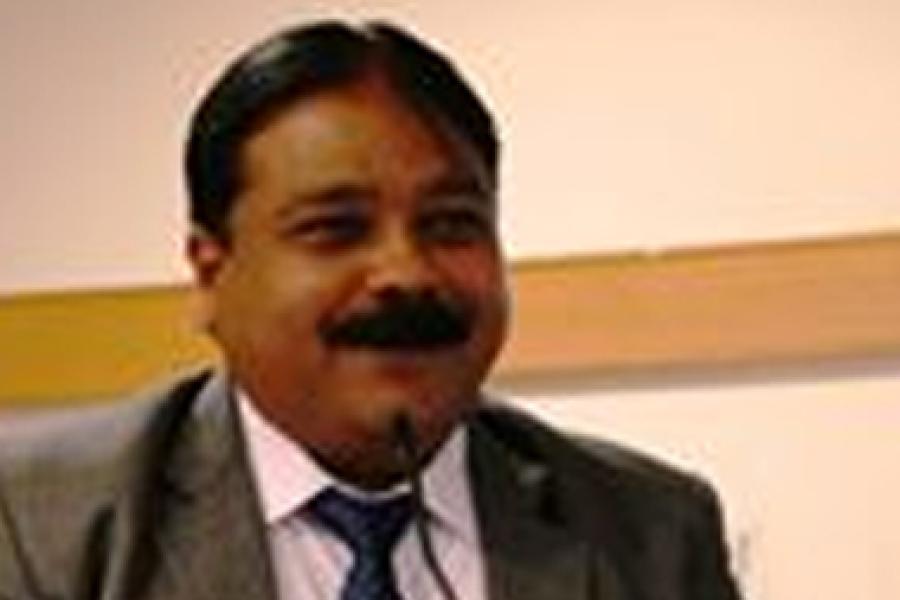
Dr Anthony Raju speaks on Transgender Community and their issue in India.
Transgender people come from all walks of life. We are dads and moms, brothers and sisters, sons and daughters. We are your coworkers, and your neighbors. We are 7-year-old children and 70-year-old grandparents. We are a diverse community, representing all racial and ethnic backgrounds, as well as faith backgrounds.
The word “transgender” – or trans – is an umbrella term for people whose gender identity is different from the sex assigned to us at birth. Although the word “transgender” and our modern definition of it only came into use in the late 20th century, people who would fit under this definition have existed in every culture throughout recorded history.
Despite the increased visibility of transgender celebrities like actress Laverne Cox or writer Janet Mock, many Americans still don’t personally know anyone who is transgender – but the number who do is growing rapidly. According to a 2016 survey by Greenberg Quinlan Rosner Research, commissioned by the Human Rights Campaign, 35 percent of likely voters in the United States “personally know or work with someone who is transgender.” That's more than double the 17 percent who answered yes when asked the same question in 2014.
Other research suggests that there are at least 700,000 transgender people in the United States, about 0.3 percent of the total population and about 3.5 percent of the LGBTQ community; but these estimates are likely conservative because of the limited amount of studies that have attempted to measure the transgender population.
What does it mean to be transgender?
The transgender community is incredibly diverse. Some transgender people identify as male or female, and some identify as genderqueer, nonbinary, agender, or somewhere else on or outside of the spectrum of what we understand gender to be. Some of us take hormones and have surgery as part of our transition, and some don’t. Some choose to openly identify as transgender, while others simply identify as men or women. For more information on questions you may have about transgender people
In many ways, transgender people are just like cisgender (non-transgender) people; but because of the social stigma surrounding our transgender identity, our community faces a unique set of challenges.
What challenges do transgender people face?
While the visibility of transgender people is increasing in popular culture and daily life, we still face severe discrimination, stigma and systemic inequality. Some of the specific issues facing the transgender community are:
Lack of legal protection : The Supreme Court of India issued a ruling ,recognizing the country's large transgender population as a legal third gender. In so ruling, the court ordered that the government ensure that transgender people are not discriminated against and are eligible for government jobs and education in the same way as it does with other minority groups. It also ordered that the government take steps to promote awareness and to ensure that they are provided with proper medical treatment and public facilities. The landmark two-judge ruling acknowledged the history of marginalization that transgender individuals have faced. "Recognition of transgenders as a third gender is not a social or medical issue but a human rights issue," the opinion stated. India has a long cultural history of recognizing transgender individuals, but their lack of legal recognition has led to discrimination, including prevalent hate crimes.
Poverty– In too many cases, this lack of legal protection translates into unemployment for transgender people. Transgender are living in severe poverty as Dr. Anthony Raju visited the PUNE and met Punna and Team. As anyone who has experienced poverty or unemployment understands, being unable to afford basic living necessities can result in homelessness or lead people to engage in underground economies like drug sales or survival sex work, which can put people at increased risk for violence and arrest.
Harassment and stigma– The LGBTQ community still faces considerable stigma based on over a century of being characterized as mentally ill, socially deviant and sexually predatory. While these flawed views have faded in recent years for lesbians and gay men, transgender people are still often met with ridicule from a society that does not understand us. This stigma plays out in a variety of contexts – leaving us vulnerable to lawmakers who attempt to leverage anti-transgender stigma to score cheap political points; to family, friends or coworkers who reject transgender people upon learning about our transgender identities; and to people who harass, bully and commit serious violence against transgender people.
Anti-transgender violence : The Anti Transgender Violence is the very serious issue in India
Identity Documents – The widespread lack of accurate identity documents among transgender people can have an impact on every area of their lives, including access to emergency housing or other public services. To be clear, without identification, one cannot travel, register for school or access many services that are essential to function in society
While advocates continue working to remedy these disparities, change cannot come too soon for transgender people. Visibility – especially positive images of transgender people in the media and society – continues to make a critical difference for us; but visibility is not enough and comes with real risks to our safety, especially for those of us who are part of other marginalized communities.
That is why the Our Human Rights Movement (HRM) under All India Council of Human Rights, Liberties and Social Justice (AICHLS) is committed to continuing to support and advocate for the transgender community, so that the transgender Indian who are and will become your friends, neighbors, coworkers and family members have an equal chance to succeed and thrive, said Dr Anthony Raju , Advocate , Global Chairman All India Council of Human Rights, Liberties and Social Justice (AICHLS)
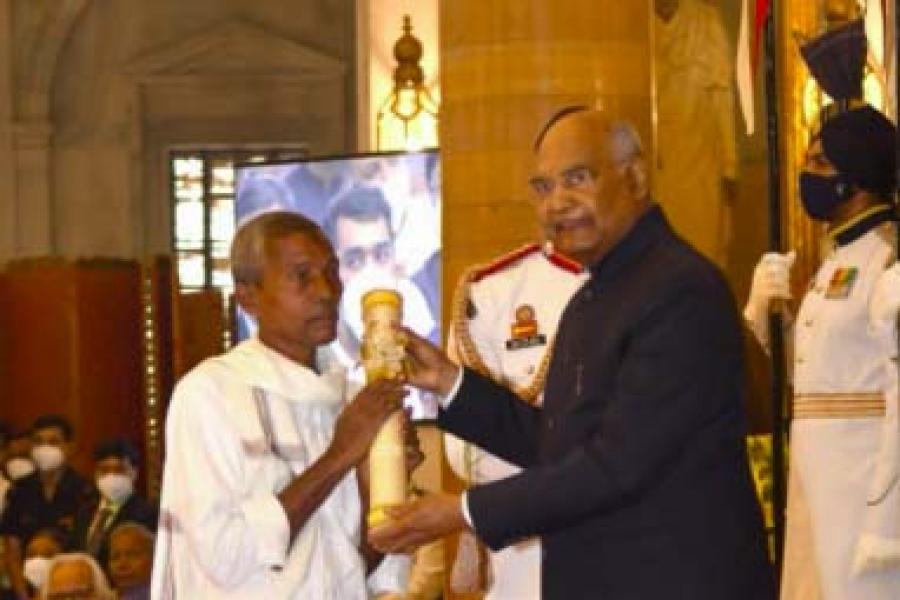
Real Hero, said Dr. Anthony Raju
Harekala Hajabba is known for the revolution he has brought in rural education within his state. He kept part of his savings from selling oranges, to start a school in the region he came from so that the children there could get educated. Today, the school, which has grown with government support and donations from private individuals, is known as Hajabba School. He is affectionately known as ‘ Akshara Santa’ (The saint of letters) in Mangalore city.
Social activist and writer Ismath Pajeer has published a book on his life, which is titled as ‘Harekala Hajabbara Jeevana Charitre’ (Life story of Harekala Hajabba). Mangalore University has included life story of Hajjabba in its latest syllabus. The British Broadcasting Corporation published an article on him with the title “Unlettered fruit seller’s Indian education dream” in November 2012.
He is the winner of ‘Real Heroes’ award by CNN-IBN and Reliance Foundation. Kannada Prabha, a local newspaper named him their Person Of The Year.
#PadmaShri #motivation #humanity #REALHero #philantrophy #education #indiangovernment
#DRANTHONYRAJU
=========================
MEMBERSHIP OPEN AICHLS AND National Council of News and Broadcasting (Join as Journalist) JOIN THE TOP AND MOST REPUTED HUMAN RIGHTS MOVEMENT OF THE COUNTRY AND
RAISE YOUR VOICE FOR THE VOICELESS PEOPLE
Top Criminal Advocate
Top Human Rights Advocate
SPEAK BEFORE APPLYING FOR THE MEMBERSHIP
For more details, visit below
9873005424, 9873087903
https://humanrightscouncil.in/
https://humanrightscouncil.in/membership-form-download.php
https://www.hrcin.org/membership-form.html
http://ihrac.org/membership-form-download.php
https://twitter.com/AdvAnthonyRaju
Email: Office@humanrightscouncil.in
ALL INDIA COUNCIL OF HUMAN RIGHTS, LIBERTIES & SOCIAL JUSTICE
(AICHLS) is founded by Dr. Anthony Raju - Advocate, Supreme Court of India, Dynamic Internationally Accredited Human Rights Defender, Inspirational, spiritual and motivational speaker, Peace Activist & Social Worker and is one of global's foremost voices of Human Rights and powerful voice for voiceless people globally.
All India council of human rights, liberties & social justice has been added as signatory to UNITED NATION GLOBAL COMPACT. The world's largest corporate responsibility initiative with nearly 12,000 business and non-business participants in 140 countries. That All India Council of Human Rights, Liberties & Social Justice (AICHLS), is a duly registered Society under the Societies Registration Act XXI of 1860, and is functioning with commitment to the Noble Cause of Human Rights Protection and Promotion, Justice for All, Economic Upliftment of the Underprivileged, Education, Love, Peace, Harmony and Friendship, National & International Integration by Exchange of Ideas & Ethos in India and also amongst the neighbouring countries and the people of the rest of the World at large.
Dr. Anthony Raju
Advocate , Supreme Court of India.
Global Chairman , All India Council of Human Rights, Liberties & Social Justice.
Chairman - National Legal Council
International Convener, Universal mission for Peace and Human Rights.
Chairman, National Council of News and Broadcasting.
Secretary General : Asian Human Rights Council
International Peace keeper
http://www.awardsforhumanrights.com/
https://www.newsindiatoday.tv/home/
https://www.linkedin.com/in/anthonyraju/
https://www.facebook.com/allindiacouncilofhumanrights/
https://plus.google.com/u/1/?tab=mX
https://www.youtube.com/user/TheHumanrightsindia/
http://www.xavierinstitutions.org/
www.asianhumanrightscouncil.org
www.internationalhumanrightscouncil.org
======================================================
In Public Interest, More Links Of Human Rights Organisation working for the promotion and protection of Human Rights.
#Tophumanrightscouncil, #Humanrightsinindia #Socialjustice, #freelegalhelp #HumanRightsOrganizationsInIndia, #HumanRightsComplaint, #HumanRights, #AdvocateSupremeCourt #HumanRightsMembership #TopHumanRightsOrganisationofIndia #peace #gahrc #humanrightseducation #humanrightsleadership #humanitarian #ihrac #dranthonyraju #aichls #humanrightsambassador #humanrightsactivist #motivationalspeaker #inspirationalspeaker #humanrightsadvocate #nhrc #tophumanrightsadvocate #topcriminaladvocate
APPLICATION PROCESS · 1) Whatsapp on 8108410031 and Ask for the Membership Form · 2) Print the Form on Legal Size Paper. 3) Fill the form in BLOCK ... Mar 11, 2020 — Tamil Nadu State Human Rights Commission ... 143, P.S. Kumarasamy Raja Salai, (Greenways Road), Raja Annamalai Puram, Chennai-600 ...
Membership Open - All India Council Of Human Rightshttps://www.humanrightscouncil.in › single_page
About featured snippets
•
Feedback
People also ask
How can I join human rights in Chennai?
How many members are there in Tamilnadu Human Rights Commission?
What is the qualification for Human Rights Commission?
How many members are in the Human Rights Commission?
Feedback
Tamil Nadu State Human Rights Commissionhttps://nhrc.nic.in › statecommission › tamil-nadu-state-...
19-Jan-2021 — Member. Dr. A.Chittaranjan Mohandoss. 24951489. 29864224. 4. Secretary. Tmt. V.Shobana, IAS. 24951490. 9444351238. 5. Registrar(Law).
State Human Rights Commission, Tamil Nadu, Indiahttp://www.shrc.tn.gov.in
State Human Rights Commission. Thiruvarangam. 143, P.S. Kumarasamy Raja Salai, (Greenways Road). Chennai 600 028, Tamilnadu. Phone : 91-44-2495 1484
You've visited this page 2 times. Last visit: 5/3/20
Join Us - HUMAN RIGHTS & SOCIAL JUSTICE MISSIONhttps://www.hrsjm.org › join-us
APPLICATION PROCESS · 1) Whatsapp on 8108410031 and Ask for the Membership Form · 2) Print the Form on Legal Size Paper. · 3) Fill the form in BLOCK letters. · 4) ...
You've visited this page 4 times. Last visit: 2/10/20
news headline - MEMBERSHIP FORM-ALL INDIA COUNCIL ...http://www.ihrac.org › single_page
State Human Rights Commission. Thiruvarangam. 143, P.S. Kumarasamy Raja Salai, (Greenways Road). Chennai 600 028, Tamilnadu. Phone : 91-44-2495 ...
news headline - MEMBERSHIP FORM-ALL INDIA COUNCIL ...http://ihrac.org › single_page
TAMIL NADU STATE HUMAN RIGHTS COMMISSION. Door no. 143, Greenways Road, Royapettah, Chennai- 600028. Phone: 044- 24951484/ ... Tamil Nadu State Human Rights ...
Human Rights Membership Tamilnadu Chapterhttps://aichls.wordpress.com › 2020/09/25 › human-rig...
25-Sep-2020 — State Human Rights Commission. Thiruvarangam. 143, P.S. Kumarasamy Raja Salai, (Greenways Road). Chennai 600 028, Tamilnadu. Phone : 91-44-2495 ...
About Us - Red Eyehttps://redeyehumanrights.com › aboutus
Red-Eye Human Rights Foundation of India has been developing their office and set up new working office all over the district of Tamil Nadu , Chennai, as well ...
Chennai Human Rights Commission - Times of Indiahttps://timesofindia.indiatimes.com › topic › Chennai-H...
26-Oct-2021 — Chennai Human Rights Commission News: Latest and Breaking News on Chennai ... Tamil Nadu: Five non-dalit ward members resign in reserved ...
Human Rights Commission Chennai Address, Contact ...https://address001.com › Address-of-Human-Rights-Co...
I want to join as member. Address reply image Reply. Review tick image Agree Review cancel image Disagree ...
Related searches
human rights commission membership
human rights commission chennai online complaint
tamil nadu state human rights commission chairman 2021
human rights commission contact number
district human rights commission
human rights commission chennai contact number
karnataka human rights commission membership
human rights commission chennai address
State Human Rights Commission Tamil Nadu - Wikipediahttps://en.wikipedia.org › wiki › State_Human_Rights_...
(b) One member who is or has been a judge of the High Court. (c) One Member who is or has been a judge of the District Court. (d) Two members to be appointed ...
TAMIL NADU STATE COMMISSION FOR WOMEN - Social ...https://www.tnsocialwelfare.org › pages › view › tamil-...
A chairperson and 9 members have been appointed. ... Women who have complaints of violation of their rights and ... Chepauk, Chennai 600005.
state human right commission - Indian Kanoonhttps://indiankanoon.org › search › formInput=state hu...
Commission” means the National Human Rights Commission constituted under section ... State Human Rights Commission, Rep. by its Secretary, Chennai 600 014.
human rights commission doctypes: chennai - Indian Kanoonhttps://indiankanoon.org › search › formInput=human r...
Hence, writ petitioner filed a complaint before the Human Rights Commission. 3. ... The State Human Rights Commission rep. by its Member, Tamil Nadu 2.
ADDRESSES OF HUMAN RIGHTS INSTITUTIONShttps://www.coimbatorehumanrights.org › .html
07-Dec-2017 — Website: www.nhrc.nic.in. TAMIL NADU STATE HUMAN RIGHTS COMMISSION Door no. 143, Greenways Road, Royapettah, Chennai- 600028
List of State Women Commissionshttp://ncw.nic.in › important-links › list-state-women-co...
Smt Chimo Devi Uraon, Member, -do-, Mobile: ... for Women Ground Floor, Agriculture Office Building, Chepauk, Chennai 600005 Phone : 28551155, Mobile:
CHR United Nations Commission on Human Rights - OHCHRhttps://www.ohchr.org › hrbodies › chr › pages › com...
Composed of 53 States members, its brief expanded over time to allow it to respond to the whole range of human rights problems and it set standards to ...
Missing: chennai | Must include: chennai
250 - TAMIL NADU GOVERNMENT GAZETTEhttp://www.tniuscbe.org › downloadPDF
Thiru A.R. Selvakumar, Dr. K. Marriappan and Dr. S. Paramasivan, Members, State Human Rights. Commission, on completion of five years term of office, ...
India gets re-elected to UN Human Rights Council for 2022-24 ...https://www.thehindu.com › News › National
14-Oct-2021 — India got 184 votes in the 193-member assembly, while the required majority was 97.
Tamil Nadu - IHRAhttps://ihra.co.in › teamdetail
RED ALERT FOR MEMBERS · DONATE & HELP · BECOME AN IHRA MEMBER ... International Covenant on Civil and Political Rights · International Human Rights Law ...
Karnataka State Human Rights Commission 1st - 4th FLOORS, 5th PHASE, MULTISTOREYED BUILDING, BANGALORE-560 001. Phone: 080-22392200 ... 080-22392218 (Office) 080-22373917 (Direct) 080-22392206 (Fax). Member.
Membership Open - All India Council Of Human Rightshttps://www.humanrightscouncil.in › single_page
About featured snippets
•
Feedback
People also ask
How can I join human rights in Bangalore?
What is the qualification for Human Rights Commission?
Who are the members of Human Rights Commission?
Who is the human rights commissioner in Karnataka?
Feedback
Karnataka State Human Rights Commissionhttps://nhrc.nic.in › statecommission › karnataka-state-h...
26-Nov-2020 — Karnataka State Human Rights Commission ... Bangalore-560001. Karnataka ... Member. Shri K.B.Changappa. 22392233. kshrc@gmail.com. 3. Member.
Life Membership open for Karnataka Chapter -.::HRCIN::.https://www.hrcin.org › single_page
Jul 3, 2020 — Karnataka State Human Rights Commission. Karnataka ... Bangalore-560001 ... Member. Shri K.B.Changappa. 22392233. kshrc@gmail.com. 3.
Contact Us - KARNATAKA STATE HUMAN RIGHTS ...https://kshrc.karnataka.gov.in › page › Contact+Us
12-Aug-2021 — Contact Us · KARNATAKA STATE HUMAN RIGHTS COMMISSION · 1st - 4th FLOORS, 5th PHASE, MULTISTOREYED BUILDING, BANGALORE-560 001. · Phone: 080- ...
Join Us - HUMAN RIGHTS & SOCIAL JUSTICE MISSIONhttps://www.hrsjm.org › join-us
APPLICATION PROCESS · 1) Whatsapp on 8108410031 and Ask for the Membership Form · 2) Print the Form on Legal Size Paper. · 3) Fill the form in BLOCK letters. · 4) ...
You've visited this page 4 times. Last visit: 2/10/20
Top 30 Human Right Organisations in Bangalorehttps://www.justdial.com › ... › 32+ Listings
Karnataka State Human Rights Commission. 4.0. 140 Ratings. Ambedkar Veedhi · Sri Krishnashraya Educational Trust in Near SJES College Virgonagar, Bangalore.
Rating: 4.1 · 461 votes
You've visited this page 2 times. Last visit: 9/3/21
news headline - MEMBERSHIP FORM-ALL INDIA COUNCIL ...http://ihrac.org › single_page
The Karnataka State Human Rights Commission was formally constituted by the Government order No. LAW 20 LAG 05 dated 28 June 2005. However, the present ...
karnataka state human rights commission - India Environment ...http://www.indiaenvironmentportal.org.in › filesPDF
Bangalore, dated: 02-05-2009. Off: Tele: 22392200 ... KARNATAKA STATE HUMAN RIGHTS COMMISSION AT BANGALORE ... HON'BLE SRI R.H.RADDI, MEMBER. BETWEEN;.
17 pages
Karnataka State Human Rights Commission - Wikipediahttps://en.wikipedia.org › wiki › Karnataka_State_Hum...
The Karnataka State Human Rights Commission was formally constituted by the Government order ... However, the present chairperson and members were appointed by the ...
Formed: 25 July 2007 (Notification: LAW 20 LAG ...
Agency executive: Dhirendra Hiralal Waghela, ...
General nature: Federal law enforcement
Federal agency: India
state human rights commission doctypes: karnataka - Indian ...https://indiankanoon.org › search › formInput=state hu...
Karnataka, Bangalore 560 001 2. The Registrar Karnataka State Human Rights Commission 3rd Floor, 5th Block, M.S. Building ... that there was a proceedings ...
Human Rights Membership - Stop Domestic Violence
Ad·
https://www.riseupforrights.in/human_rights/bangalore
Bangalore Human Rights Ngo in Bangalore is working on various social issues. Stop Child Labour, Domestic Violence, Legal Issue, Awareness & more. Women Righs. File Complaints.
Donate · Complaint · Join Us · What We Do
PO 7566 New Thippasandara Post, Bangalore, Karnataka
Related searches
free human rights membership
human rights card benefits
human rights membership form pdf
human rights commission membership
how to join human rights commission
international human rights membership
human rights id card images
international human rights commission membership
Karnataka State Human Rights Commission 1st - 4th FLOORS, 5th PHASE, MULTISTOREYED BUILDING, BANGALORE-560 001. Phone: 080-22392200 ... 080-22392218 (Office) 080-22373917 (Direct) 080-22392206 (Fax). Member.
Membership Open - All India Council Of Human Rightshttps://www.humanrightscouncil.in › single_page
About featured snippets
•
Feedback
People also ask
How do I join human rights membership?
How many members are in the Human Rights Commission?
What is the qualification for Human Rights Commission?
Who are the members of Human Rights Commission?
Feedback
Karnataka State Human Rights Commissionhttps://nhrc.nic.in › statecommission › karnataka-state-h...
26-Nov-2020 — Karnataka. 1. Hon'ble Chairperson. Justice Dhirendra H Waghela. 22280017,22280010,22392206 (Fax). chairpersonkshrc@gmail.com. 2. Member.
State Human Rights Commissions | National Human Rights ...https://nhrc.nic.in › about-us › state-commission
Karnataka State Human Rights Commission Karnataka State Human Rights Commission. Tel.No.: ... 2, Member, Shri K.B.Changappa, 22392233, kshrc@gmail.com.
Contact Us - KARNATAKA STATE HUMAN RIGHTS ...https://kshrc.karnataka.gov.in › page › Contact+Us
12-Aug-2021 — KARNATAKA STATE HUMAN RIGHTS COMMISSION · 1st - 4th FLOORS, 5th PHASE, MULTISTOREYED BUILDING, BANGALORE-560 001. · Phone: 080-22392200 Fax:080- ...
Life Membership open for Karnataka Chapter -.::HRCIN::.https://www.hrcin.org › single_page
The Karnataka State Human Rights Commission was formally constituted by the Government order No. LAW 20 LAG 05 dated 28 June 2005. However, the present ...
Membership open for Karnataka Chapter -.::HRCIN::.https://www.hrcin.org › single_page
Dec 10, 2018 — Mysuru: Member of Karnataka State Human Rights Commission (KSHRC) and Retired Director General of Police Rupak Kumar Dutta called .
Karnataka State Human Rights Commission - Wikipediahttps://en.wikipedia.org › wiki › Karnataka_State_Hum...
The Karnataka State Human Rights Commission was formally constituted by the Government order No. LAW 20 LAG 05 dated 28 June 2005.
Formed: 25 July 2007 (Notification: LAW 20 LAG ...
Agency executive: Dhirendra Hiralal Waghela, ...
General nature: Federal law enforcement
Federal agency: India
Join Us - HUMAN RIGHTS & SOCIAL JUSTICE MISSIONhttps://www.hrsjm.org › join-us
APPLICATION PROCESS · 1) Whatsapp on 8108410031 and Ask for the Membership Form · 2) Print the Form on Legal Size Paper. · 3) Fill the form in BLOCK letters. · 4) ...
You've visited this page 4 times. Last visit: 2/10/20
human rights doctypes: karnataka - Indian Kanoonhttps://indiankanoon.org › search › formInput=human r...
RETIRED MEMBER OF KARNATAKA HUMAN RIGHTS 2 COMMISSION, M S BUIDLING BANGALORE - 560 001 4. SRI CHANDRASHEKAR GURUBASAPPA HUNGOND MEMBER.
Karnataka State Human Rights Commission - Times of Indiahttps://timesofindia.indiatimes.com › topic › Karnataka-...
Karnataka State Human Rights Commission News: Latest and Breaking News on ... with the state government dithering on nominating members to the Panchayat Raj ...
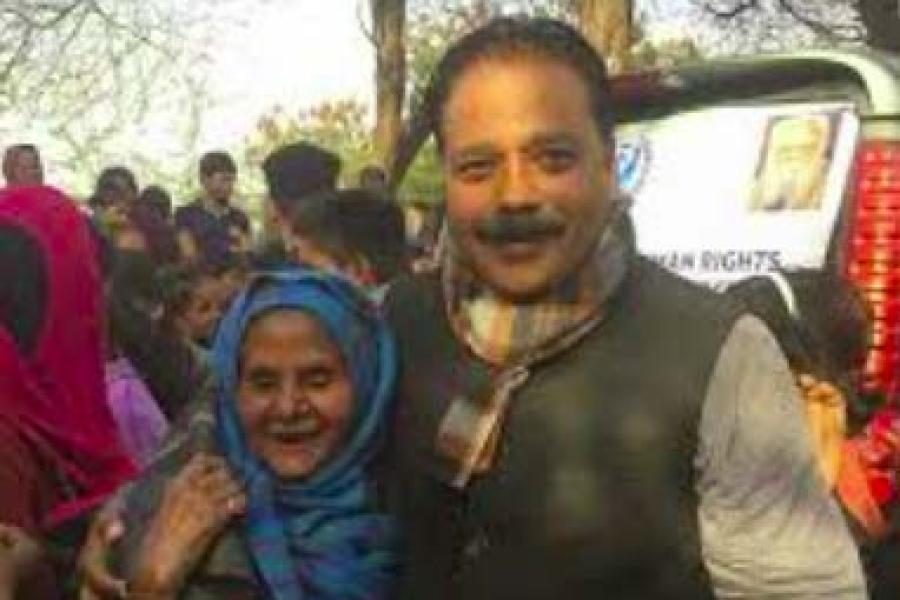
MEMBERSHIP OPEN
JOIN THE TOP AND MOST REPUTED HUMAN RIGHTS MOVEMENT OF THE COUNTRY AND
RAISE YOUR VOICE FOR THE VOICELESS PEOPLE
Top Criminal Advocate
Top Human Rights Advocate4
6
SPEAK BEFORE APPLY FOR THE MEMBERSHIP
For more details, visit below
9873005424, 9873087903
https://humanrightscouncil.in/
https://humanrightscouncil.in/membership-form-download.php
Email: Office@humanrightscouncil.in
ALL INDIA COUNCIL OF HUMAN RIGHTS, LIBERTIES & SOCIAL JUSTICE
(AICHLS) is founded by Dr. Anthony Raju - Advocate, Supreme Court of India, Dynamic Internationally Accredited Human Rights Defender, Inspirational, spiritual and motivational speaker, Peace Activist & Social Worker and is one of global's foremost voices of Human Rights and powerful voice for voiceless people globally.
All India council of human rights, liberties & social justice has been added as signatory to UNITED NATION GLOBAL COMPACT. The world's largest corporate responsibility initiative with nearly 12,000 business and non-business participants in 140 countries. That All India Council of Human Rights, Liberties & Social Justice (AICHLS), is a duly registered Society under the Societies Registration Act XXI of 1860, and is functioning with commitment to the Noble Cause of Human Rights Protection and Promotion, Justice for All, Economic Upliftment of the Underprivileged, Education, Love, Peace, Harmony and Friendship, National & International Integration by Exchange of Ideas & Ethos in India and also amongst the neighbouring countries and the people of the rest of the World at large.
Dr. Anthony Raju
Advocate , Supreme Court of India.
Global Chairman , All India Council of Human Rights, Liberties & Social Justice.
Chairman - National Legal Council
International Convener, Universal mission for Peace and Human Rights.
Chairman, National Council of News and Broadcasting.
Secretary General : Asian Human Rights Council
International Peace keeper
http://www.ihrac.org/
http://www.awardsforhumanrights.com/
https://www.newsindiatoday.tv/home/
http://www.ncnb.in/
https://www.linkedin.com/in/anthonyraju/
https://www.facebook.com/allindiacouncilofhumanrights/
https://twitter.com/aichls
http://www.anthonyraju.com/
http://www.juneann.in/
https://plus.google.com/u/1/?tab=mX
https://www.youtube.com/user/TheHumanrightsindia/
http://www.xavierinstitutions.org/
www.asianhumanrightscouncil.org
www.internationalhumanrightscouncil.org
======================================================
In Public Interest, More Links Of Human Rights Organisation working for the promotion and protection of Human Rights.
#Tophumanrightscouncil, #Humanrightsinindia #Socialjustice, #freelegalhelp #Humanrightscommission, NationalHumanRightsCommission #HumanRightsOrganizationsInIndia, #StateHumanRightsCommission, #HumanRightsCommissionDelhi, #HumanRightsComplaint, #HumanRights, #AdvocateSupremeCourt #HumanRightsMembership #TopHumanRightsOrganisationofIndia #peace #gahrc #humanrightseducation #humanrightsleadership #humanitarian #ihrac #dranthonyraju #aichls #humanrightsambassador #humanrightsactivist #motivationalspeaker #inspirationalspeaker #humanrightsadvocate #humanrightscommissioncomplaint #nhrc #tophumanrightsadvocate #topcriminaladvocate














